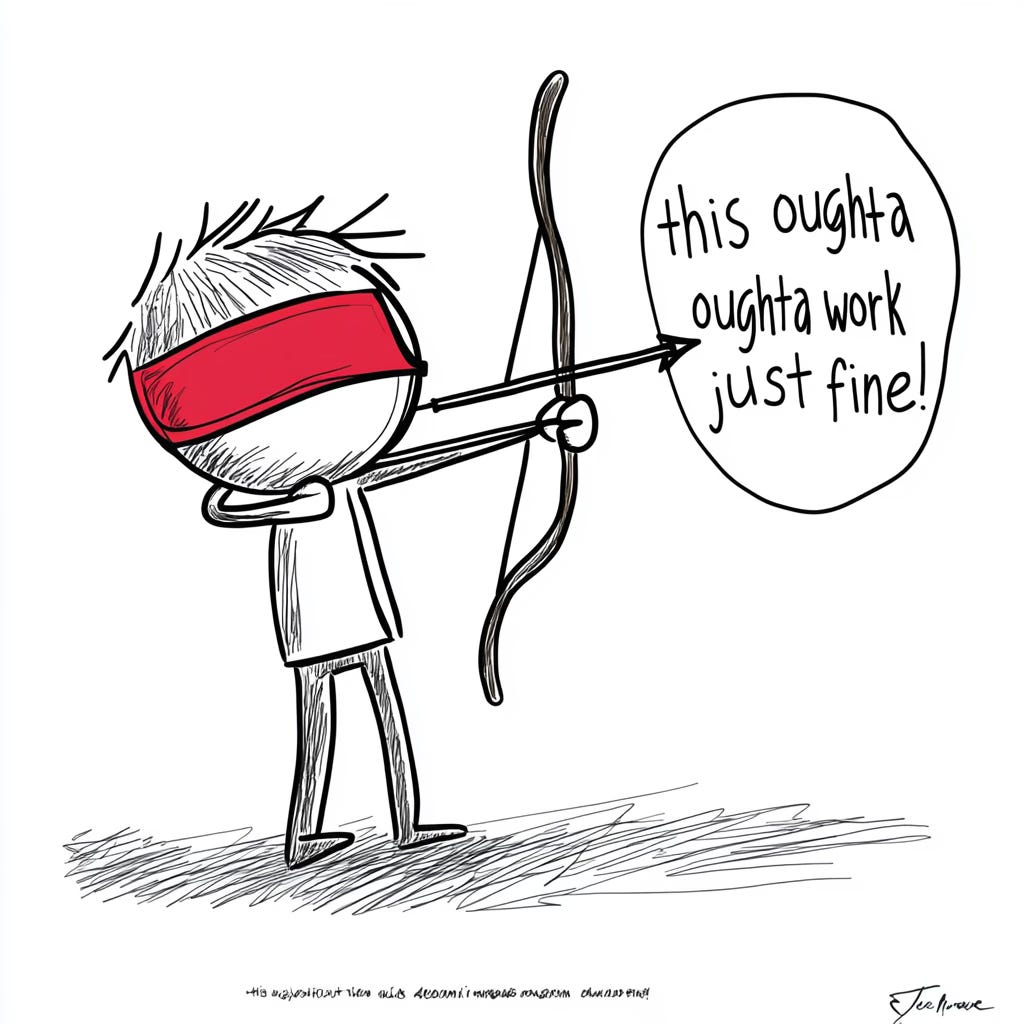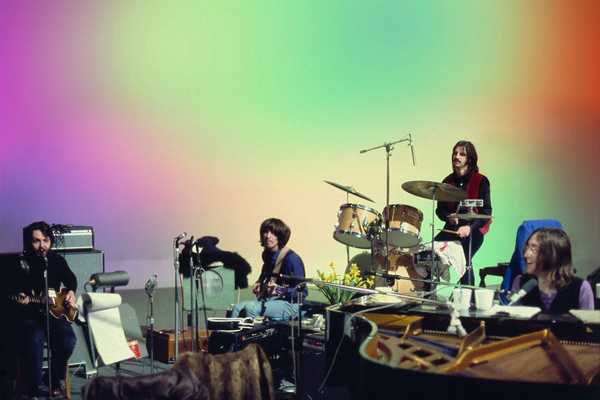Being Balanced Is Essential
The ability to shift between an active and contemplative state of mind has never been more important.

Full disclosure - I had a whole draft of this newsletter written on Monday. Then the election happened, and I went through an internal debate of whether to make wholesale changes, leave it as it was, or publish at all. I chose to recognize the current environment but keep the focus on professional perspective and applications. If you want my personal, political POV on this topic you’re welcome to hit me up privately.
I’ve been on a personal journey for the past year. I’ve learned quite a bit about myself. Perhaps in another moment, I’ll share details. For now, I’m focused on one part my journey - a quest to learn and practice mindfulness.
I am naturally predisposed to action. I see something, and I become curious as to how I could act/react in accordance. Intellectually, I react very quickly, and rationally in almost every situation. I’m driven by the notion, “What if?” It’s a question that begs action. If an opportunity or idea sparks in my brain, I instinctively run with it and try to see if I can bring it to a positive outcome.
However, in the past year, I have learned that reflection is equally important (if not more so) in our society and certainly within the modern marketing environment. To quiet my thoughts, slow myself down, and see or act with more clarity I’ve turned to a three-part mindfulness practice:
- Meditation: three times daily to prepare, check-in, and reflect.
- Practiced pausing: taking a deliberate pause before engaging.
- Journaling: writing to capture and clarify my thoughts and feelings.
In time, I have realized that my life –and work–has been so consumed with action and output that I neglected inputs. This realization guided me to meditation, and to new ways of thinking through reading material such as Buddhism without Beliefs. That led to the daily practice that I outlined above, which I am now working on refining even into my work. I strive for a balance between action and reflection.
Aristotle, the OG of philosophical thought, had a framework for this: the concepts of "vita activa" (the active life) and "vita contemplativa" (the contemplative life). He argued that human flourishing requires both – action informed by contemplation, and contemplation grounded in real-world experience. Two thousand years later, this ancient wisdom feels more relevant than ever, especially in our modern marketing landscape.
Contemplation In An Algorithmic World
When I was leading digital for Monster in 2021, I was inundated with questions, pitches, and “forceful suggestions” that the brand needed a strategy for NFTs.
Some brands jumped on the trend right away. Some reaped rewards right away. Others shut it down after not seeing any. A few just caused me to scratch my head. Ultimately, after several months of research, conversations with connected folks, and deliberations with my team we determined that NFTs were not something to pursue. I think we were proven right (for now). Our careful contemplation led to more informed, productive action.
Here's the thing about modern marketing: we're drowning in tools, trends, and trade-talk, but starving for wisdom. Aristotle wisely understood that if you never stop and think, your actions are inherently instinctive and the outcomes increasingly (likely) random. We could use a healthy dose of brutal simplicity: breathe, release, and think. Then–and only then–we should act.
This balanced approach has transformed how I evaluate new marketing ideas:
The Contemplative Phase:
- What is the opportunity?
- What are the important considerations and implications?
- How does this help me achieve my goals?
- Are there examples from which I can take instruction (or inspiration)?
The Active Phase:
- What is my best first step?
- How will I evaluate the outcome?
- What should I do next?
- What does a long-term plan look like?
It's like being both the scientist and the explorer – you need the lab coat and the Indiana Jones outfit. Let’s run through some examples in marketing where taking a balanced approach is helpful.
Take AI, for instance. The debate and the use of artificial intelligence is quite messy right now. From my interactions and news feeds, I think most marketers (and people in general) agree on two things: AI is here to stay, and it’s going to have significant implications in both personal and professional spheres. Past that… it’s a mud pit. I don’t see a lot of coherent policy and strategy being enabled. To garble a Faulkner quote, I see a lot of sound and fury but I’m not sure it means much. That appears to be driven by instinctive action.
The rise of AI in marketing presents both a challenge and an opportunity to practice this balanced approach. While AI excels at the "active" part of marketing – generating content, analyzing data, and optimizing campaigns – it's the contemplative human element that gives these tools meaning and direction.
I've found that the most effective AI implementations come from marketing teams who take time to:
- Understand the technology's fundamental principles
- Consider its ethical implications
- Envision its role in their larger strategy
- Plan for human-AI collaboration
(By the way, I include the AI companies themselves in this assessment; some of the recent decisions and product releases seem self-indulgent bordering on silly).
Social media is another medium within which marketing work perfectly encapsulates the tension between action and contemplation. The platform algorithms reward a barrage of constant activity (and 🤑🤑🤑), yet the most successful social media strategies I've seen come from marketers who take time to reflect, analyze, and understand before acting. Most brands desperately chase TikTok trends, and you might strike gold a time or two. However, the smarter play is to build a rigorous model of experimentation; study behavioral patterns, test hypotheses, and iterate to optimize the growth curve. That type of approach embodied what Aristotle meant by combining action with contemplation – it’s not action for the sake of acting, but with clear-eyed purpose and a willingness to look inward.
A third area where this dual approach proves valuable is in marketing measurement. We've all been guilty of what I call "dashboard addiction" – reporting on numbers without giving due weight to the meaning inferred or outright spoken by the data. The contemplative approach asks deeper questions:
- Does what we’re measuring actually matter?
- Why are these metrics the right ones, and not others?
- How does the data connect to actual human behavior?
- What are we missing by focusing only on quantifiable data?
Think of this type of practice, and these types of questions in situations like I’m describing above akin to meditation–the goal isn't to empty your mind, but to create space for clearer thinking and more purposeful action.

Positioning Yourself For Personal Growth
Like most things in marketing, there’s a significant personal component to achieving a mind balanced between active and contemplative states. First and most important is to acknowledge a couple of core human truths: we’re all biased and hypocritical. To believe otherwise about yourself is to fool only yourself, not others. You can try hard–really hard– as I have to remove bias and eliminate hypocrisy… but we’re not computers. We run on two types of logic–rational and emotional. There’s just no getting around it.
Once you’ve accepted these truths, you’ll be more easily able to navigate communication that combines simplicity and nuance. I know, you’re thinking, “Dude you just told me to accept hypocrisy, and now you’re telling me about keeping things simple with detail.” 😵💫 😤 But bear with me. This is why freeing space in your mind for reflection and accepting those truths can benefit you greatly in your career. Three things can happen with an honest, clear mind:
- You’re calm. Crucial to demonstrate leadership.
- You’re clear. You’ll say or do what’s truly essential.
- You’re connected. You admit fallibility in ways that inspire confidence.
Giving yourself space and time to reflect, distill, and then deploy new thinking means you’ll grow faster, make a greater impact, and build stronger bonds. People will see you as someone to emulate, and someone who can be trusted in any situation. As my dad would say, “You’re a foxhole person.” Someone who can be trusted in the heat of battle to have everyone’s best interest in mind.
You’ll also gain new perspectives. Too often early in my career, I would get caught ruminating on the outcome of a given situation instead of reflecting on what I learned. As I moved on and upward, I realized that the lessons were more important than the outcomes. If you can’t explain why your idea did or didn’t work, did or didn’t get approved, did or didn’t make sense… that’s failure. One you’re doomed to repeat.
It feels apropos to talk about this right now because half of the United States is caught in a doomsday loop of distress and blame. It’s leaping to an active state of mind without reflection. And if we don’t stop, reflect, and seek to understand why this election turned out this way, it’s just going to repeat again and again. Maybe not an exact repetition, but in ways that align with whatever the current environment turns out to be. And we’ll be no better for it. Progress is messy and change is hard enough already… the least you (and we) can do is try to make it easier by asking ourselves a few tough questions and accepting some stark truths so that we can find better answers next time.
Find Your Balance
The beauty of combining "vita activa" and "vita contemplativa" is that it creates a sustainable approach to innovation. Instead of being caught in the endless cycle of react-and-respond, you develop what I call "strategic presence" – the ability to act decisively while maintaining a broader perspective.
Some practical ways to cultivate this balance:
- Schedule regular "think periods” away from execution
- Create reflection rituals before/after launching major campaigns
- Build contemplative practices into workflows with your team
- Alternate between periods of intense action and strategic reflection
As marketing continues to evolve at breakneck speed, the ability to balance action and contemplation becomes not just helpful but essential. It's not about choosing between being a doer or a thinker – it's about being both, each mode informing and enriching the other. BTW–everywhere I’ve said “marketing” or “work” you could just as easily drop in “life.” That’s the beauty of this philosophy. It’s a simple formula for a better mind, and that’s something we all need every day, all the time.
Sometimes the profound wisdom we seek isn't in the dramatic action sequences–it's in the quiet moments of reflection, in the patient understanding of our tools and techniques, and in the balanced approach to innovation and execution. I think we can all use a heaping dose of that right now.
So breathe in, breathe out, let it flow, then get up and go.




